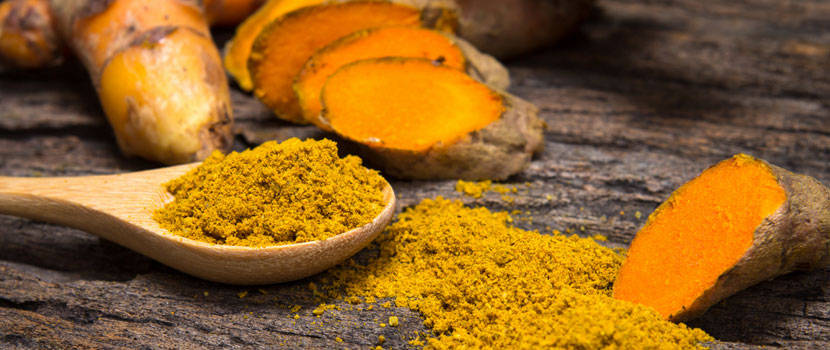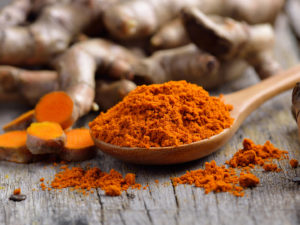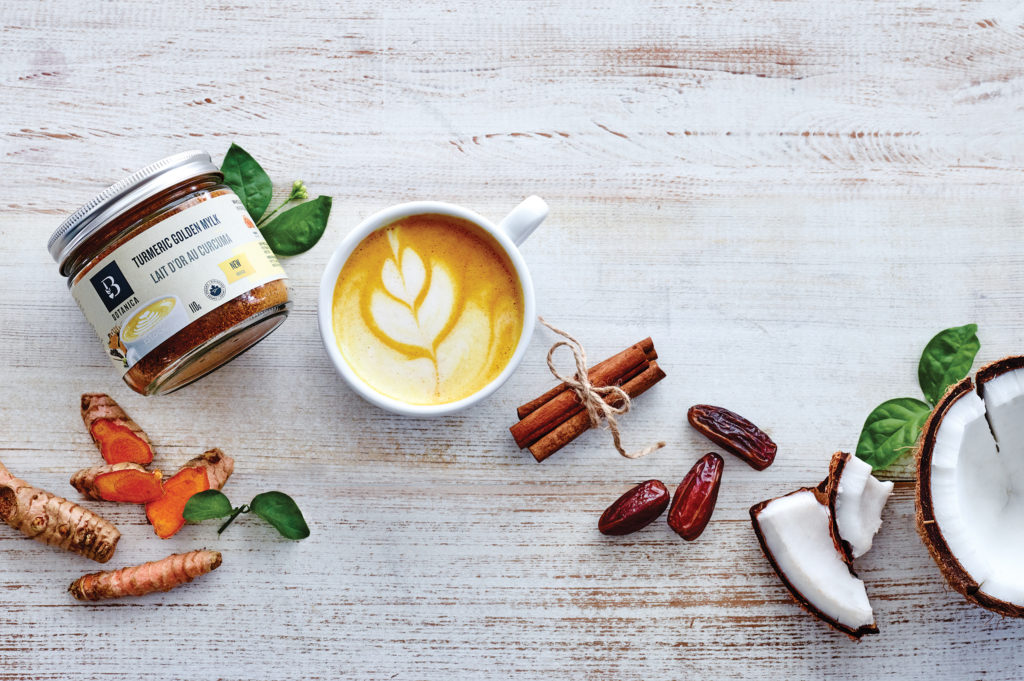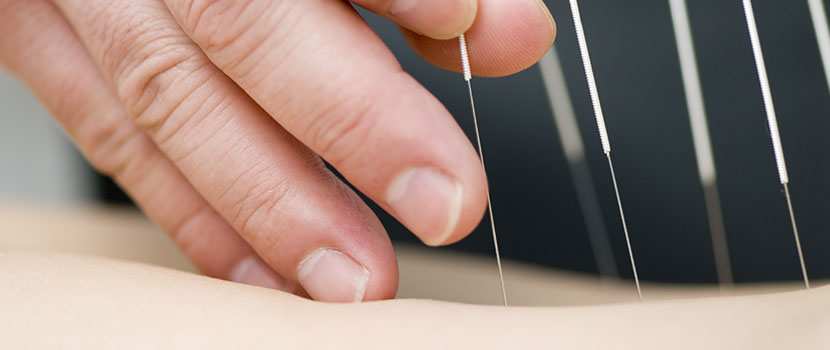

 Is turmeric the cure-all it has been made out to be? A spice used traditionally for culinary and medicinal purposes for centuries is now just beginning to be understood by the scientific community. Yet, as researchers themselves have voiced “how a single agent can possess [such] diverse effects has been an enigma over the years” (1).
Is turmeric the cure-all it has been made out to be? A spice used traditionally for culinary and medicinal purposes for centuries is now just beginning to be understood by the scientific community. Yet, as researchers themselves have voiced “how a single agent can possess [such] diverse effects has been an enigma over the years” (1).
Research and tradition aside, the question for most of us becomes, what exactly is this cure-all spice good for and how can I harness its medicinal benefits?
Here are 9 benefits & ways of incorporating turmeric in your diet
- Potent Antioxidant
Let’s start with the most basic and potentially easiest day to day route of introduction. Turmeric as a potent antioxidant has been shown to make meats and heated oils safer. How? Anytime a food item is heated, lipid peroxidation renders the good (unsaturated) fats into trans (unhealthy & damaging) fats. Turmeric has been shown to protect against that (2,3)! So dash a pinch or two of turmeric whenever heating oils and meat!
- Fountain of Youth
With its all-encompassing benefits, if there was a superfood (and I don’t use this term lightly) turmeric would be it. Okinawa, known as the Longevity Island, is home to the world’s highest known concentration of centenarians. Among other health boosting lifestyle factors, Okinawans drink copious amounts of turmeric tea daily. Scroll down for recipe.
- Learning & Memory
Further to the above, if you suffer from poor memory -especially during times of high stress- turmeric can help! Animal studies have found turmeric treatment with regular powdered supplement and a fermented turmeric product, to significantly reduce stress hormone levels while causing an improvement in learning and memory (4,5).
- Anti-inflammatory
Medicinally, turmeric’s ability to prevent and help manage chronic diseases including heart disease, Irritable bowel disease, arthritis and inflammatory skin conditions including psoriasis and lupus comes down to its potent anti-inflammatory properties -one of turmeric’s most well-known properties!
- Improves Insulin Function
An extension of turmeric’s anti-inflammatory properties is protection against damage caused by Diabetes –nerve and blood vessel damage in the eyes, extremities and kidneys (7). Moreover, curcumin has been shown to improve insulin function and found to be protective of pancreatic cells -that secrete insulin- in animal studies (6,7).
- Protection Against DNA Damage
I’m sure you’ve all heard the recent health news of certain rice products containing toxic levels of arsenic. The question of why and how arsenic is found in rice aside, consumption of turmeric has been found to be protective against DNA damage in chronically arsenic-exposed populations (8). So have your rice and eat it too –with turmeric! J
- Arthritis Relief
As a powerful anti-inflammatory agent, it is no wonder turmeric has such profound effects on all forms of inflammatory joint conditions (osteoarthritis and rheumatoid arthritis). Moreover, turmeric has been found to turn off genes whose protein products cause damage to joints and may even prevent against bone loss as found in animal studies (9).
- Digestive Aid & Liver Support
In the West, turmeric has found great reputation as a powerful anti-oxidant and anti-inflammatory agent. If you were to ask an Ayurvedic Medicine Practitioner on the other hand, they’d tell you that turmeric has traditionally been used as a digestive aid and liver support. From a Western Medicine perspective, these benefits can be attributed to turmeric’s ability to improve gall bladder function, prevent gallstone formation and protection against liver damage caused by pharmaceutical agents. However due to these same actions turmeric can cause significant gall bladder contraction which may be painful in active bile duct obstruction or gallstones.
- Three Easy Ways of Incorporating Turmeric Into Your Diet

Golden Mylk Latte
Turmeric is a root, sold whole or ground up. You can use it to cook with, sprinkle it on food, or buy it in capsules. Due to the above-mentioned potential for aggravation of gall bladder obstruction, you may want to consult with your health care provider before starting on a supplemental form of turmeric. The gradual introduction of turmeric in the kitchen however would be a great safe start! Amounts under 1tsp a day are generally considered safe and should not pose a health risk. Here are some suggestions for your culinary uses:
- Tea – Recipe 1 or Recipe 2
- Use in soups, stews, stir-fries, rice, dressings, marinates and even smoothies! It adds flavor and colour while preventing against the damaging oxidation processes that are a natural part of the cooking process. Where and when possible combine with black pepper as studies show a highly synergistic effect between the two.
- Use as a Food colouring agent; our environments are toxic enough and so eliminating further toxic load by staying clear of artificial colouring agents is a plus especially for our young ones whose systems of detoxification are still immature while their love of all things colourful can present a problem! Add it to their favourite cupcake recipe or their homemade Popsicle for a pop of happy yellow!
Although the medicinal qualities of turmeric described above are not a complete listing, it is sufficient credit to turmeric’s all-encompassing health properties benefiting almost every system in the body. Also, as a mild-tasting and inexpensive spice, adding this powerful plant to your diet is one of the best things you can do for your health long-term.
Your In Health,
Dr. Negin, ND

TURMERIC GOLDEN MYLK by Botanica Health available for purchase at London Wellness Center (Byron, Ontario)
References:
- Gupta, S., Patchva, S. and Aggarwal, B. (2012). Therapeutic Roles of Curcumin: Lessons Learned from Clinical Trials. The AAPS Journal, 15(1), pp.195-218.
- Zhang, Y, et al. (2015). Turmeric and black pepper spices decrease lipid peroxidation in meat patties during cooking. International Journal of Food Sciences and Nutrition 66 , Iss. 3
- Anindita Banerjee, Santinath Ghosh, Mahua Ghosh. Anti-oxidative effect of turmeric on frying characteristics of soybean oil. Journal of Food Science and Technology March 2015, Volume 52, Issue 3, pp 1760–1765
- Khalid, A., Shakeel, R., Justin, S., Iqbal, G., Shah, S., Zahid, S. and Ahmed, T. (2017). Pharmacological effects of turmeric on learning, memory and expression of muscarinic receptor genes (M1, M3 and M5) in stress-induced mouse model. Current Drug Targets, 18(999), pp.1-1.
- Eun, C., Lim, J., Lee, J., Lee, S. and Yang, S. (2017). The protective effect of fermented Curcuma longa L. on memory dysfunction in oxidative stress-induced C6 gliomal cells, proinflammatory-activated BV2 microglial cells, and scopolamine-induced amnesia model in mice. BMC Complementary and Alternative Medicine, 17(1).
- Zheng DW, Min F, Si-Hua G, and Jun-Li L. Curcumin and Diabetes: A Systematic Review. Evid Based Complement Alternat Med. 2013; 2013: 636053.
- Na Lx, et al. Curcuminoids Target Decreasing Serum Adipocyte-fatty Acid Binding Protein Levels in Their Glucose-lowering Effect in Patients with Type 2 Diabetes. Biomed Environ Sci. 2014 Nov;27(11):902-6.
- Biswas J, Sinha D, Mukherjee S, Roy S, Siddiqi M, Roy M. Curcumin protects DNA damage in a chronically arsenic-exposed population of West Bengal. Hum Exp Toxicol. 2010;29(6):513–524.
- Funk, J., Oyarzo, J., Frye, J., Chen, G., Lantz, R., Jolad, S., Sólyom, A. and Timmermann, B. (2006). Turmeric Extracts Containing Curcuminoids Prevent Experimental Rheumatoid Arthritis#. Journal of Natural Products, 69(3), pp.351-355.


